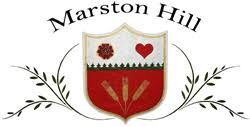Swedish and German Spoken Language
A Comparison of a Swedish and a German Corpus of Spoken language
Research on spoken language has been intensified in the last twenty years. However, there is still a need for an adequate theoretical account of spoken interaction. Such an account is, to some extent, halted by the long tradition of grammar as téxné grammatike (the art of writing) rather than as a study of the practice of speaking.
Spoken language is the product of everyday interaction in which social structures as well as social and cultural practices are constituted, upheld and changed. In our comparison of Swedish and German spoken language, we would like to investigate similarities and differences concerning such structures and practices, both with regard to linguistic structures, their functions and cultural context.
The linguistic data consists of a Swedish corpus GSLC (Göteborg Spoken Language Corpora) of about 1.3 million words (cf Allwood et al 2002) and a German corpus of about 800 000 words from the IDS language archive in Mannheim. Both are incrementally growing.
Planned work
- In phase 1, we will compare the most frequent word types of spoken German and Swedish.
- In Phase 2, we will investigate the grammatical construction types which are connected with the most frequent word types.
- In Phase 3, we will look more closely at phenomena which are characteristic of spoken interaction like turntaking, feedback, openings and closings and other typical interactive sequences.
In all our investigations we will be interested in how cultural differences and/or similarities are manifested through language.
Project management
Jens Allwood (Dept of Linguistics)
Christiane Pankow (Dept of German Languages)
Bibliography
Allwood, Jens; Ahlsén, Elizabeth; Grönqvist, Leif and Gunnarsson, Magnus (2002) Annotations and Tools for an Activity Based Spoken Language Corpus.
van Kuppevelt J. (ed.) Current and New Directions in Discourse and Dialogue (2nd SIGdial Workshop proceedings), Kluwer Academic Publishers.

